PEGylated Lipid-Based Nanoparticles for Drug Delivery: Pros and Cons of a Frontline Technology in Modern Pharmacotherapy
A special issue of Pharmaceutics (ISSN 1999-4923). This special issue belongs to the section "Drug Delivery and Controlled Release".
Deadline for manuscript submissions: closed (30 September 2022) | Viewed by 275
Special Issue Editor
Interests: structure and non-target effects of mRNA-LNPs; anti-PEG antibodies; complement system/activation/inhibition; pharmacokinetics; immunotoxicity; adverse immunological side effects; hypersensitivity/allergic reactions; gene therapy; immune activation by nano-biopharmaceuticals; complement-activation-related pseudoallergy (CARPA);cytokine release/storm syndrome; in vitro/in vivo models of innate immune activation; infusion reactions/anaphylaxis; allergic/anaphylactic reactions to COVID vaccines
Special Issues, Collections and Topics in MDPI journals
Special Issue Information
Dear Colleagues,
Polyethylene glycol (PEG), a synthetic polymer with varying chain lengths and degrees of branching, has been widely used in medicine as active ingredient or excipient. Its chemical attachment to various nanoparticles provides a hydrophilic layer around them, enhancing the in vitro stability, and hence supports the preservation of lipid-based nanoparticulate drugs, gene delivery systems, vaccines, and many other nanocarriers. The PEG “shield” interferes with the interaction of nanoparticles with blood proteins and cells of the mononuclear phagocyte system, thus slowing their in vivo clearance, which is the basis of long-circulating “stealth” nanoparticles. Over the past several decades of PEG’s use in pharmacotherapy, substantial information has accumulated on the various impacts of surface density, chain length, branching, membrane anchor and chain-end capping on the physicochemical and pharmacological features of PEGylated nanoparticles, which have been applied in all successful PEGylated drugs and agents. However, recently, another less-laudable feature of PEGylation has surfaced: the induction of and reaction with anti-PEG antibodies, which can entail complement activation. Complement activation can trigger hypersensitivity (pseudo-allergic) reactions, as well as rapid uptake by phagocytic cells, that is, loss of stealthiness. There are a few nanodrugs whose clinical success was cut short by the rise of efficacy loss and/or hypersensitivity reactions mediated by anti-PEG antibodies. Most recently, the presence of PEG has been implicated in the increased prevalence of allergic reactions to mRNA–lipid nanoparticle-based COVID-19 vaccines. The papers and reviews collected in the present themed volume of Pharmaceutics aim to discuss the details and new insights into this frontline technology of modern pharmacotherapy. Among others, they will address the physicochemical characteristics of PEGylated nanomedicines, as well as their synthesis, biodistribution, safety, efficacy, immunogenicity, immune reactivity and possible alternatives that are actively being investigated as replacements for PEG.
Prof. Dr. Janos Szebeni
Guest Editor
Manuscript Submission Information
Manuscripts should be submitted online at www.mdpi.com by registering and logging in to this website. Once you are registered, click here to go to the submission form. Manuscripts can be submitted until the deadline. All submissions that pass pre-check are peer-reviewed. Accepted papers will be published continuously in the journal (as soon as accepted) and will be listed together on the special issue website. Research articles, review articles as well as short communications are invited. For planned papers, a title and short abstract (about 100 words) can be sent to the Editorial Office for announcement on this website.
Submitted manuscripts should not have been published previously, nor be under consideration for publication elsewhere (except conference proceedings papers). All manuscripts are thoroughly refereed through a single-blind peer-review process. A guide for authors and other relevant information for submission of manuscripts is available on the Instructions for Authors page. Pharmaceutics is an international peer-reviewed open access monthly journal published by MDPI.
Please visit the Instructions for Authors page before submitting a manuscript. The Article Processing Charge (APC) for publication in this open access journal is 2900 CHF (Swiss Francs). Submitted papers should be well formatted and use good English. Authors may use MDPI's English editing service prior to publication or during author revisions.
Keywords
- accelerated blood clearance (ABC)
- adverse drug reactions
- anti-PEG antibodies
- biologicals
- biotherapeutics
- complement activation-related pseudoallergy (CARPA)
- drug targeting
- hypersensitivity reactions
- immunogenicity
- nanomedicines
- pharmacokinetics
- polyethylene glycol (PEG)
- stealth liposomes






